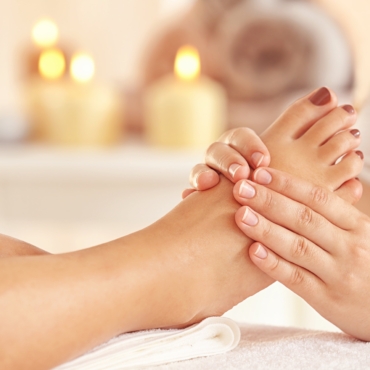Massage therapy is a treatment approach which is growing in demand and popularity. It was once considered an alternative or fringe approach, but it is now becoming much more mainstream. More importantly, now that massage therapy is considered a mainstream treatment option, many insurance companies provide coverage for treatment sessions. This form of therapy involves hands-on techniques to increase circulation, relieve tension, reduce stress, relieve anxiety, improve sleep, and promote relaxation throughout the entire body, as well as many other benefits. The body’s soft tissue areas include the muscles, tendons, connective tissue, etc. If someone is tense and in need of a release, or they have been injured and have extensive muscle and/or nerve tissue damage that plagues their body, massage therapy might be worth exploring. Here are some benefits of massage therapy.
1. It Is Relaxing – When the body is tense and under stress, it produces unhealthy levels of the well-known stress hormone, cortisol, which can contribute to weight gain, sleeplessness, digestive problems, and headaches. Massage therapy has been shown to decrease cortisol levels in the body. This enables the body to enter a recovery mode. Moreover, this form of therapy also triggers lasting feelings of relaxation, improved mood, and reduced stress levels.
2. It Reduces Stress – Not only can massage therapy help with stress relief, but regular massage sessions over a prolonged period of time can boost energy levels, reduce pain, and stimulate individuals on physical as well as emotional levels.
3. It Can Help Lower Blood Pressure – Regular massage therapy sessions have been found to reduce blood pressure levels. In fact, some long-term studies have shown that a consistent massage program can reduce both systolic (upper number) and diastolic (lower number) blood pressure. Moreover, it can also reduce cortisol levels within the body. Furthermore, consistent massage sessions can also reduce trigger sources for anxiety, hostility, tension, and depression. In turn, lower blood pressure levels can also reduce the risk of heart attack, stroke, and/or kidney failure, as well as many other health issues.
4. It Promotes Muscle Relaxation – The purpose of massage therapy is to target the source of the body’s pain via eliminating tense muscles, increasing flexibility, and providing relaxation to the affected muscles as well as the body as a whole. Massage also promotes circulation to the affected or injured muscles, which increases nutrients and oxygen to the damaged tissues. In turn, this increased activity to the affected sites reduces stiffness and edema (swelling) in the muscles and joints, as well as increases flexibility to help reduce pain. Moreover, this form of therapy also releases endorphins (pain-killing hormones), which boost the dopamine and serotonin levels in the body. These hormones assist the body in many ways–physically as well as emotionally. Case in point, they promote healing, pain management, and feelings of euphoria, as well as help to calm the nerves.
5. It Can Help Improve Circulation – The long-term benefits of massage therapy are not to be underestimated. Improved circulation is part of a snowball effect that occurs in the body as a result of receiving regular massage therapy on a consistent basis. This is because proper circulation brings damaged, stiff, and tense muscles the rich blood supply they need to promote healing.
Moreover, massage also promotes improved circulation via the use of hands-on pressure, which moves the blood through the damaged and congested areas of the body. In turn, the release of this same pressure causes new blood to flow into tissues. Furthermore, the squeezing, twisting, and pulling action of the massage technique also removes lactic acid from the muscle tissues. As a result, this action improves the lymph fluid circulation, which carries metabolic waste products away from internal organs and muscles. In turn, this results in lower blood pressure levels and improved overall body function.
6. It Can Help Improve Posture – Many Americans experience back, neck, and muscle pain from a variety of sources. However, the primary cause of this pain results from poor posture. In fact, chronic back pain, which is the number one reason for missed work days and second most common cause of disability, is often the result of incorrect or poor posture while standing and/or sitting. Moreover, being overweight, poor posture, and repetitive or overuse movements can also contribute to the strain on the back and other potential problem areas. As a result, the added strain often causes spasms, pain, and tense muscles in the hips, glutes, back, neck, and legs.
Massage therapy can help get the body back into proper alignment. In fact, improving one’s posture can be one of the most beneficial and relaxing aspects of massage therapy. Massage allows the body to relax and loosen the muscles made tense and sore via bad posture. In turn, this allows the body to position itself in its organic and pain-free posture. As part of a consistent massage therapy program, the body’s muscles are loosened and relaxed. Moreover, the joints have greater freedom, flexibility, range of motion, and pressure points are relieved. As a result, the body is able to position itself in an organic and healthy posture. In short, massage therapy helps to correct the positions and movements developed over time as a reaction to pain.
7. It Can Help Strengthen the Body’s Immune System – Regular massage sessions provide many benefits to the human body. It is a well-known fact that individuals who experience high levels of stress are more vulnerable to illness and injury. When stress is combined with sleep disturbances and poor nutrition, the impact is directed at the body’s immune system. Its ability to naturally protect itself against infections, pathogens, and bacteria is greatly reduced. Some might wonder how massage therapy benefits the immune system. Studies have indicated that regular massage sessions not only help reduce stress, but can also boost the immune system’s cytotoxic capacity (activity level of the body’s natural “killer cells”) and enhances the body’s ability to deliver nourishment. Moreover, massage therapy can be a great addition to any exercise program. Much like regular exercise can keep the body fine-tuned, regular massage therapy can help keep the immune system strong and resilient.
Once considered an alternative or fringe approach, massage therapy is now much more mainstream and growing in popularity. More importantly, now that massage therapy is considered a mainstream treatment option, many insurance companies provide coverage for treatment sessions. This form of therapy involves hands-on techniques to increase circulation, relieve tension, reduce stress, relieve anxiety, improve sleep, and promote relaxation throughout the entire body, as well as many other benefits.




